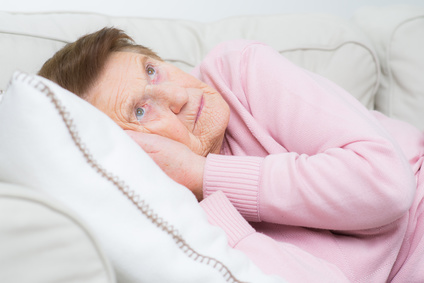It is no small task to know how to facilitate sleep for your loved one. What works for you might not work for someone else. But you keep trying. Why? Because when your loved one sleeps, you sleep. It is as much about preserving your sanity as it is about caring for your loved one. Sleep deprivation makes you do absolutely crazy things. And long term it is not sustainable. So it is worth trying different measures.
Some ways to help facilitate sleep for your loved one:
- Put your loved on a schedule. Like a young child a scheduled day helps their body physically prepare for sleep. Also as you work the schedule, you can know that an hour before bedtime it is time to start the calming process. No intense TV shows or difficult conversations. But rather starting to lower house lights and begin the routine towards bed.
. - Reduce blue light. Blue light is the light that comes from computers, clocks, TV’s and almost every electronic device. Blue light in particular can be disruptive to sleep. Work to reduce light pollution for your loved one. If they need a night light, consider a Himalayan Salt Lamp. These have a very warm, soft light that is on a dimmer switch. Additionally they are considered helpful to assist with sleep issues and sundowning. See Post Here.
. - Reduce clutter–Clutter is stressful especially to older loved ones in the middle of the night. Visibility isn’t as strong and clutter becomes not only stressful but a fall hazard. Don’t remove all familiar objects but the objects that create “busy-ness” in the room.
. - Assist with continence issues. When loved ones with incontinence get up to use the bathroom, the action of walking to the bathroom can awaken them and make it difficult for them to fall back to
sleep. To remedy this place a commode nearby that is quickly accessible. For men there also is available a condom catheter.
. - Add safety features–Make sure loved ones not only are safe but feel safe. Ask them about their safety concerns. Additionally, make sure that they ARE safe. If they tend to fall out of bed, you can remove the springs and put the mattress on the floor. Furthermore you can add mats to the floor to cushion any fall but still be firm enough to walk on. If they wander at night put a motion detector alarm letting you know they have left their room.
. - Make a room special for sleep. Make sure the room is a room dedicated to sleep alone and not TV. Association matters. If your loved one needs to sleep in a recliner, just put the recliner in the bedroom or a room dedicated to sleep away from the TV.
. - Use medications if appropriate. On occasion you may need medicinal assistance. There are over-the-counter medicines such as Relax-All or Tranquinol that can help. Doctors can also suggest pharmaceutical options.
. - Keep the room slightly cool. Cooler temperatures help facilitate sleep while warm temperatures disrupt it. Be sensitive to how cool as elders have less fat under their skin which translates less insulation. What may be cool to you may be too much for your loved one.
. - Use essential oils (lavender) in a diffuser to help facilitate sleep. A diffuser will help keep a level of moisture in the air, both cool and warm as well as diffuse essential oils. Certain oils are helpful with sleep issues, especially lavender.
Learning how to facilitate sleep for your loved one is a process of finding what works and what doesn’t. But don’t give up. Consider it an investment because when they rest, so do you. And you need all the strength you can. It’s a marathon, not a sprint.







